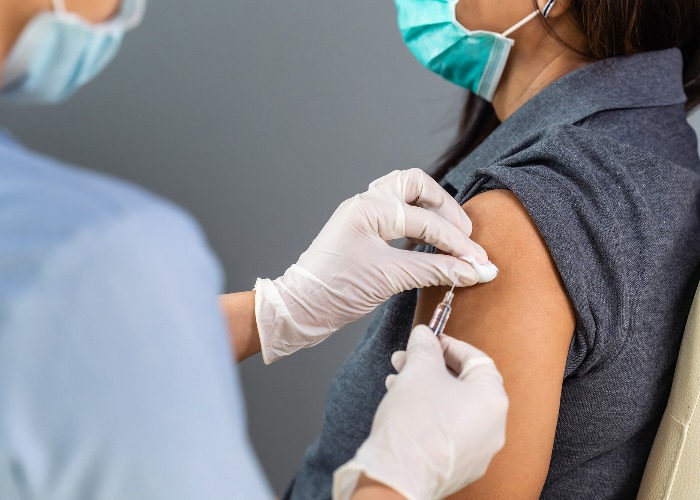South Africa enters third wave of COVID-19
South Africa has officially entered its third wave of coronavirus infections, health authorities said, with rising caseloads and a sluggish vaccine rollout fuelling fears of fresh strain on the health system. “South Africa technically entered the 3rd wave today as the national 7-day moving average incidence (5959 cases) now exceeds the new wave threshold as […]

South Africa has officially entered its third wave of coronavirus infections, health authorities said, with rising caseloads and a sluggish vaccine rollout fuelling fears of fresh strain on the health system.
“South Africa technically entered the 3rd wave today as the national 7-day moving average incidence (5959 cases) now exceeds the new wave threshold as defined by the Ministerial Advisory Committee,” the National Institute for Communicable Diseases tweeted on Thursday.
- Buhari removes Armstrong Idachaba, appoints Balarabe Ilelah as NBC DG
- Shake-up in Army: 11 Generals redeployed, new spokesman appointed
The health ministry later announced that it had detected over 9,100 cases in 24 hours — approaching the levels seen at the peak of South Africa’s second wave in December.
Chilly winter weather is also fuelling concerns of a resurge in Africa’s worst-hit country.
Four of South Africa’s nine provinces were hit by a third infection wave in late May, including the most populous Gauteng province — home to the administrative capital Pretoria and financial hub Johannesburg.
President Cyril Ramaphosa last month tightened a nighttime curfew and reintroduced limits on social gatherings in a bid to stem the spread of the virus.
To date, South Africa has recorded more than 1.7 million coronavirus cases — around 34 per cent of the continent’s reported infections — of which at least 57,410 have been fatal.
The country was hit by a second wave in December that peaked at around 10,000 new cases reported per day.
That resurge was fuelled by the more transmissible Beta virus variant, first identified in South Africa, which contributed to delaying the country’s inoculation plans due to its resistance to certain vaccines.
After several setbacks, the government now aims to vaccinate 60 per cent of South Africa’s 59 million inhabitants by March 2022.
But just over one per cent of the population have received jabs since February, prompting criticism of the government’s vaccine procurement strategy.
Ramaphosa has accused richer countries of hoarding Covid-19 shots, saying the situation could lead to a “vaccine apartheid”.
South Africa and India are pressing the World Trade Organization to waive intellectual property rights on coronavirus jabs and drugs in order to facilitate production and access for developing countries.
(AFP)
